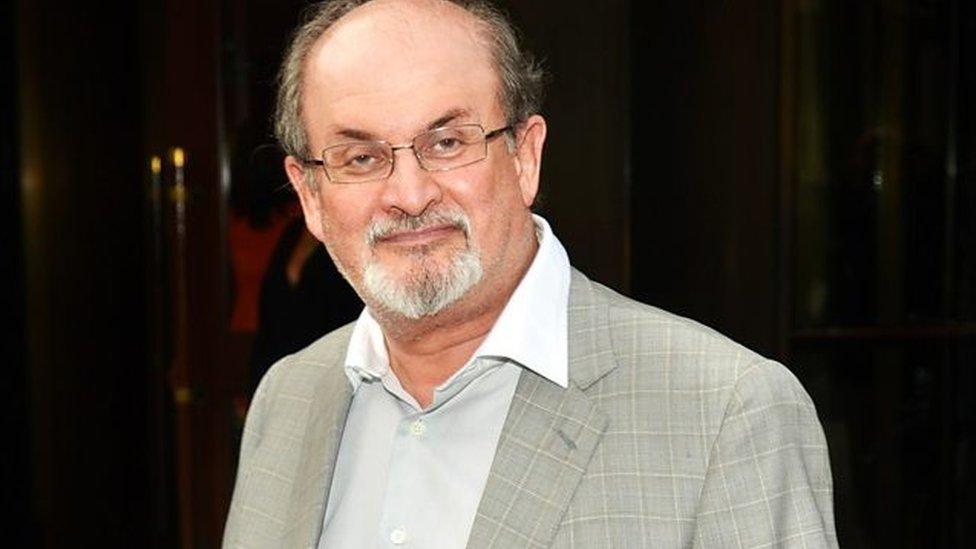'Hybrid' is the future says Edinburgh International Book Festival chief
- Published
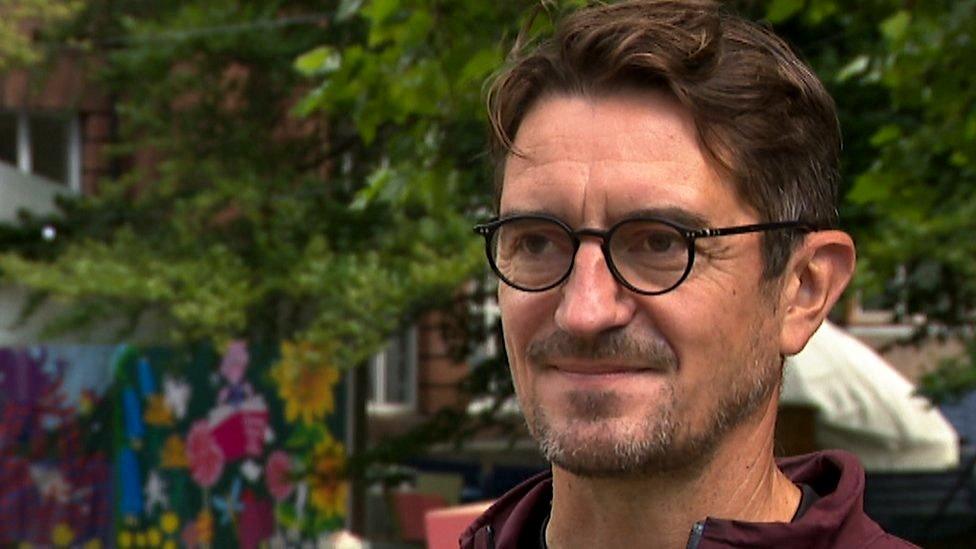
Edinburgh International Book Festival Director Nick Barley said there was no going back to the old ways
The director of the Edinburgh International Book Festival has said the future will see online audiences continue to play a crucial role.
This year's festival, which begins on Saturday, external, is a "hybrid" of a physically-distanced in-person audience as well as all events being available to watch online.
The book festival moved totally online last year due to Covid restrictions.
This year it has a new venue at Edinburgh College of Art.
Since the early 1980s, the festival has operated from a site constructed every year in Charlotte Square Gardens in the west of the city's New Town. It grew each year and in 2019 welcomed 900 writers from 60 different countries.
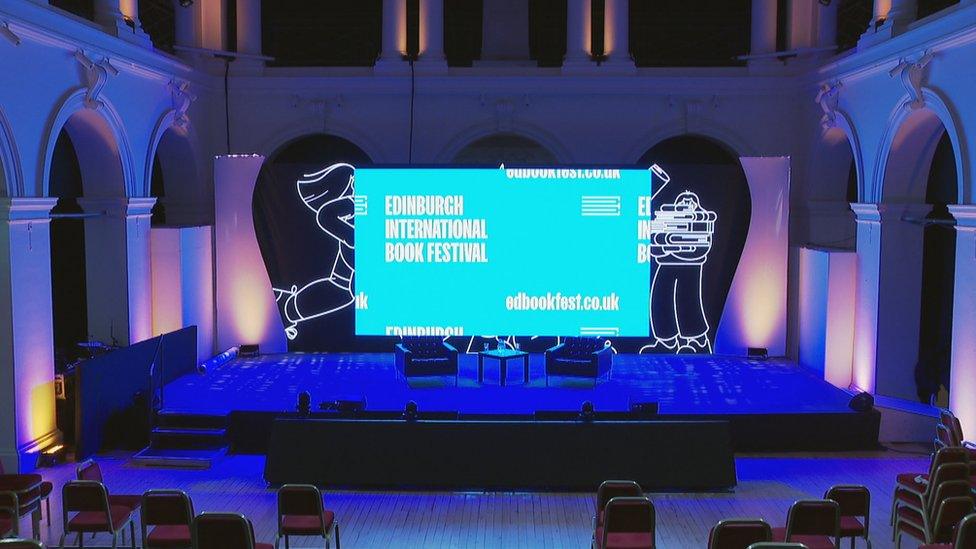
The largest of the theatres at Edinburgh College of Art can seat 100 people but the events will also be streamed online
This year, its two-week run will see the number of events scaled back from the pre-pandemic numbers.
Nobel Prize winners Amartya Sen and Kazuo Ishiguro will be among those featured at about 250 in-conversation events, as well as Booker Prize winner Salman Rushdie.
Last year's Booker Prize winner, Scottish author Douglas Stuart, will be talking about his novel Shuggie Bain with First Minister Nicola Sturgeon - and 2019 winner Bernardine Evaristo will introduce her selection of new Black British writing.
The new Edinburgh College of Art venue has three broadcast studios, two of which can accommodate limited audiences.
Festival director Nick Barley said the new facilities allowed the organisers to offer the conversations to worldwide audiences as well as those joining in-person.
Mr Barley said the largest of the theatres had a reduced capacity of 100 and the smaller one could seat 60.
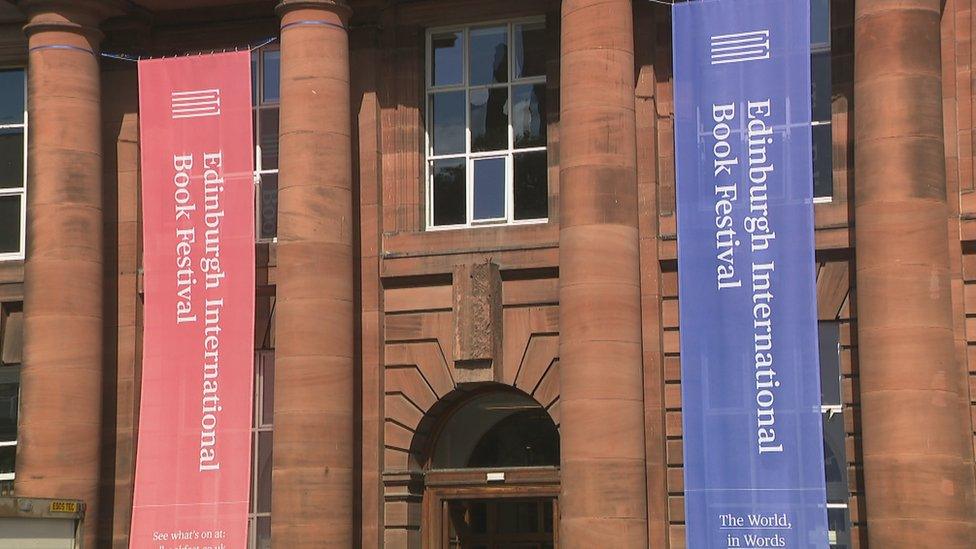
The new Edinburgh College of Art venue has three broadcast studios
In the courtyard, the festival is creating a "village green" where audiences can watch a number of the live events on a big screen.
Mr Barley said that last year's totally online festival had given them the experience of catering to a virtual audience.
"Nevertheless we are still learning how to do it and this is an experimental year," he said.
Mr Barley said the book festival had a "very loyal" local audience but last year a whole new audience was developed online.
"It puts Scotland on the international stage," he said.
Beaming in authors from around the world instead of flying them thousands of miles will also allow the festival to cut its carbon footprint, Mr Barley said.
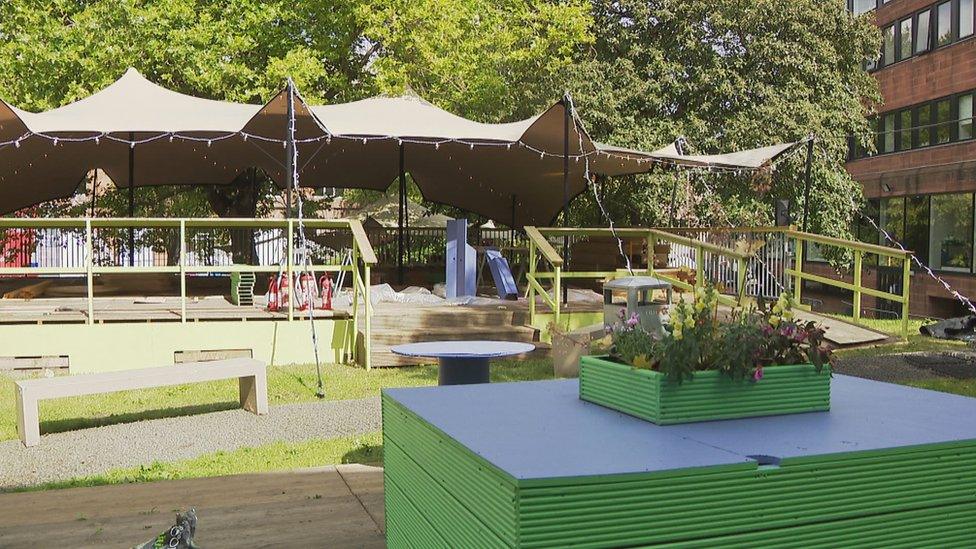
The organisers are creating a "village green" outdoors for people who attend the book festival
If international authors are brought to Scotland it will be as part of a tour or a shared event with other festivals and organisations, he said.
"One thing is for certain, we are not going back to the festivals of 2019," Mr Barley said.
"We are learning from what we got wrong back then and we are learning from the opportunities that this is giving us.
"The hybrid festival is the festival of the future. This is the starting point from which we can jump off to the future."
Related topics
- Published6 August 2021

- Published6 July 2021
